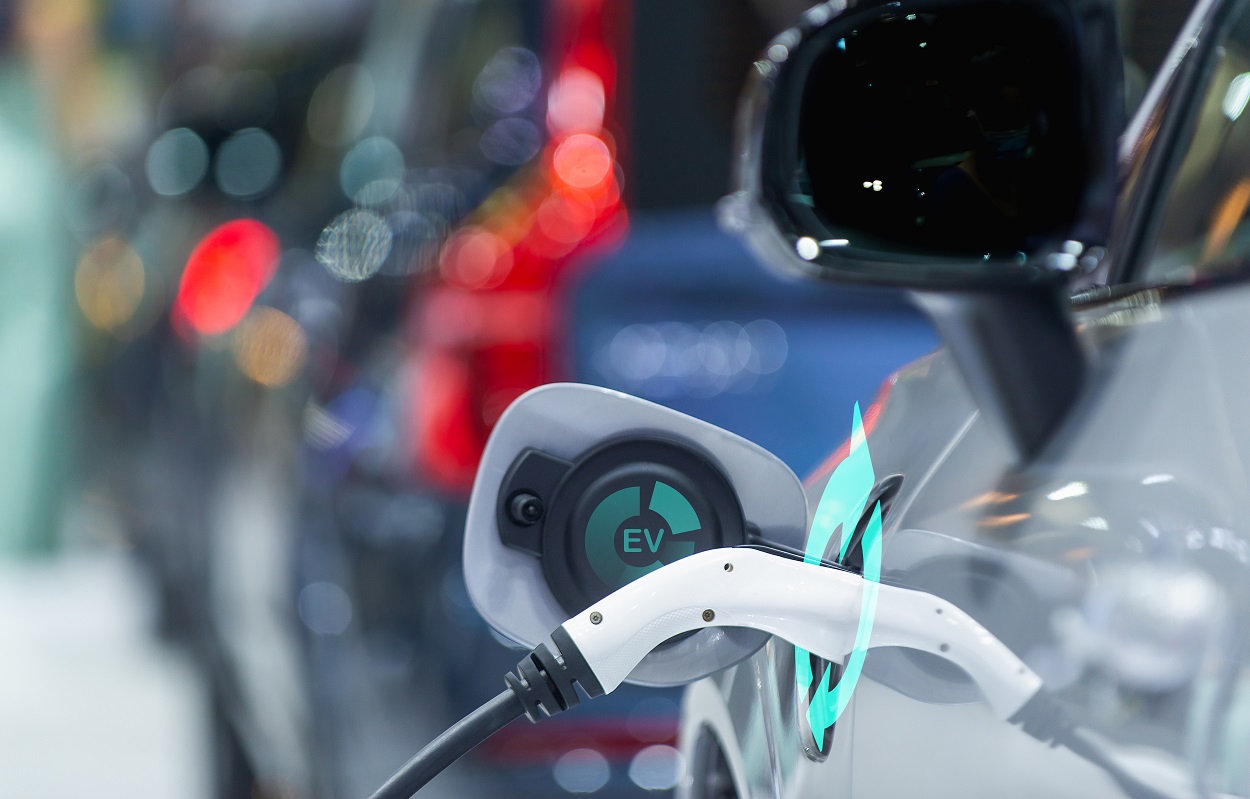Dealers Intensify Fight Against EV Sales Requirements

Table of Contents
Financial Concerns Fuel Dealer Opposition
Dealers cite significant financial hurdles as the primary reason for their opposition to EV sales requirements. The transition to selling and servicing EVs presents considerable upfront costs and ongoing challenges to profitability. These financial concerns are impacting dealership margins and threatening the viability of some businesses.
-
High Upfront Costs: Investing in EV inventory requires substantial capital. Electric vehicles often have higher sticker prices than comparable gasoline-powered vehicles, tying up dealer capital. Furthermore, dealers must invest in charging infrastructure, including installation and maintenance of Level 2 and DC fast chargers, adding significantly to their overhead.
-
Reduced Profit Margins: Dealers report that profit margins on EVs are currently lower than those on gasoline-powered vehicles. This is due to a combination of factors, including higher initial investment costs, potential for slower sales cycles, and competitive pricing pressures.
-
Demand Uncertainty: Accurately forecasting consumer demand for specific EV models is challenging. Overstocking can lead to substantial financial losses, while understocking can result in lost sales opportunities. The relatively nascent EV market makes this challenge particularly acute.
-
Stranded Assets Risk: Dealers worry about the potential for stranded assets – unsold EVs that become obsolete due to rapid technological advancements or shifting consumer preferences. This risk is amplified by the relatively shorter lifecycle of EV batteries compared to internal combustion engines.
-
Insufficient Government Support: Dealers argue that government support for their transition to EVs is insufficient. While some incentives exist, many dealers feel that they are inadequate to offset the significant financial burdens associated with adopting EV sales and servicing capabilities. The National Automobile Dealers Association (NADA) and other dealer groups have actively advocated for increased government support to ease the transition.
Logistical Challenges and Training Hurdles
Beyond financial concerns, dealers face substantial logistical challenges in adapting to the EV market. These challenges relate primarily to the specialized knowledge, tools, and infrastructure required to service electric vehicles effectively.
-
Specialized Technician Training: Servicing EVs demands specialized training and expertise. High-voltage batteries present unique safety hazards, requiring technicians to undergo extensive training on handling procedures and safety protocols. The lack of readily available and affordable training programs poses a significant barrier for many dealerships.
-
Service Department Upgrades: Dealerships need to invest in new equipment and specialized tools to diagnose and repair EV components, including sophisticated diagnostic equipment and battery management systems. This represents a significant capital investment.
-
Charging Infrastructure Challenges: Beyond providing charging stations for customer use, dealers themselves require charging infrastructure to test and maintain EV batteries. This creates additional logistical complexities and investment requirements.
-
Parts Inventory Management: Managing the inventory of EV parts and components presents unique challenges. Unlike gasoline-powered vehicles, EV parts often have longer lead times and higher costs, impacting both service turnaround times and profitability.
Consumer Demand and Market Readiness Concerns
Dealers also argue that the current market isn't yet ready for the mandated EV sales quotas. They point to several factors that hinder widespread consumer adoption of electric vehicles.
-
Insufficient Consumer Demand: Dealers contend that consumer demand for EVs is not yet sufficient to justify the stringent sales mandates imposed by various states and the federal government. They argue that forcing higher EV sales without adequate consumer demand will negatively impact the market.
-
Limited Charging Infrastructure: The lack of a robust and widespread public charging infrastructure remains a significant barrier to EV adoption. Range anxiety—the fear of running out of battery charge—continues to deter many potential buyers.
-
Affordability Issues: The higher upfront cost of EVs compared to gasoline-powered vehicles makes them inaccessible to a large segment of the population. While government incentives exist, many argue that they are not sufficient to bridge the affordability gap.
-
Ineffective Incentives: Dealers criticize the design and effectiveness of current government incentives for EV adoption. They suggest that the incentives are not sufficiently targeted or substantial enough to drive significant market growth.
The Role of Lobbying and Political Influence
Facing these challenges, auto dealers and their associations, such as the NADA, are actively engaging in political lobbying to influence policy decisions.
-
Intense Lobbying Efforts: Dealer associations are aggressively lobbying state and federal legislatures to modify or repeal EV sales mandates, arguing that the regulations are premature and economically damaging.
-
Political Contributions: Dealerships and their associations contribute financially to political campaigns and actively engage in advocacy efforts to influence policymakers.
-
Industry Collaboration: Dealers are collaborating with other industry groups to oppose regulations they deem detrimental to the automotive sector's long-term health.
-
Opposition to Government Overreach: A central argument in dealer lobbying is that the mandates represent government overreach and interference in market forces. They argue that consumer demand, technological advancements, and market competition should be the primary drivers of EV adoption.
Conclusion
The fight against EV sales requirements is a complex issue with significant financial, logistical, and political dimensions. Auto dealers' concerns regarding profitability, the need for significant investment in infrastructure and training, and uncertainties around consumer demand are legitimate and warrant careful consideration. The active role of lobbying further underscores the intensity of this debate. Understanding the dealers’ perspective is crucial for crafting effective policies that balance environmental goals with the realities of the automotive market. Further discussion and debate are needed to find solutions that support both EV adoption and the long-term viability of car dealerships. We need to continue to examine the implications of EV sales requirements and seek common ground to foster a sustainable future for the automotive industry while acknowledging the valid concerns surrounding EV sales requirements.

Featured Posts
-
 Robert Pattinson And The Horror Movie Aftermath A Chilling Sleepless Night
Apr 27, 2025
Robert Pattinson And The Horror Movie Aftermath A Chilling Sleepless Night
Apr 27, 2025 -
 Extreme Price Increases For V Mware At And Ts Concerns Over Broadcoms Acquisition
Apr 27, 2025
Extreme Price Increases For V Mware At And Ts Concerns Over Broadcoms Acquisition
Apr 27, 2025 -
 Grand National 2025 Examining The History Of Horse Fatalities
Apr 27, 2025
Grand National 2025 Examining The History Of Horse Fatalities
Apr 27, 2025 -
 Premier League The Fifth Champions League Spot A Realistic Prospect
Apr 27, 2025
Premier League The Fifth Champions League Spot A Realistic Prospect
Apr 27, 2025 -
 Kanopy Discover Hundreds Of Free Movies And Tv Shows
Apr 27, 2025
Kanopy Discover Hundreds Of Free Movies And Tv Shows
Apr 27, 2025
